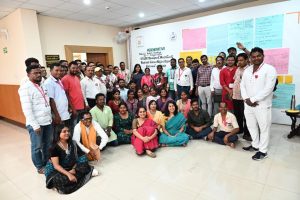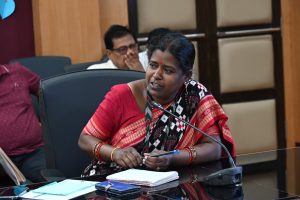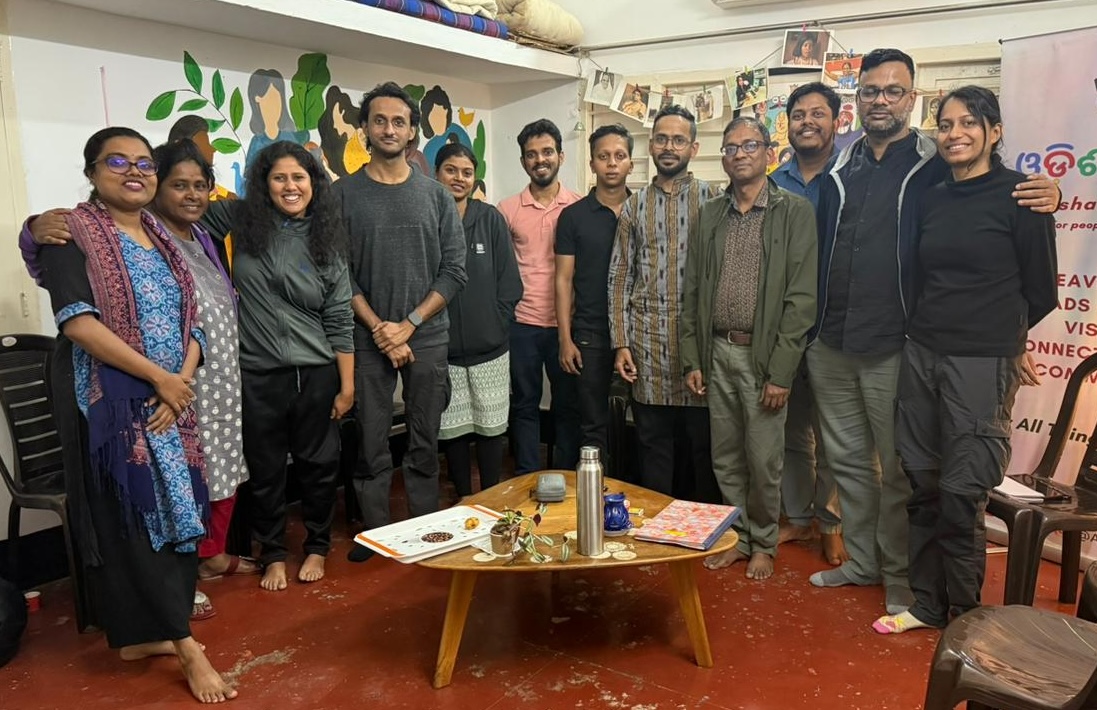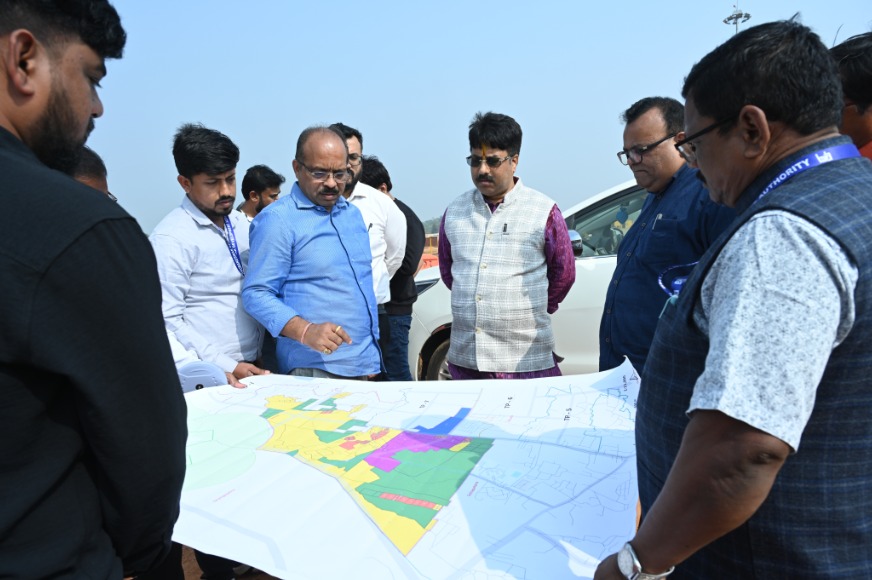Bhubaneswar: Mahul Phul – Infinitely Indigenous, a collective intelligence practice focused on enabling regenerative transformation, organized face-to-face ideation on its second day. The discussion involved three key stakeholders: PRI members, FNGO partners, and the officials of the SSD Department, with PRI members representing regions of Keonjhar, Rayagada, Mayurbhanj, Nuapada, Kandhamal, and Kalahandi.
The conversation shed light on the development needs and challenges faced by tribal communities in various parts of Odisha. It identified crucial requirements, including cold storage facilities, irrigation systems, scientific training for farmers, market linkages, education and healthcare services, infrastructure improvements, and addressing water scarcity. Recognizing the significance of addressing these needs, the discussion emphasized fostering holistic development in Odisha’s tribal communities, while preserving their cultural heritage and creating sustainable growth opportunities.
Tribal communities in Odisha face challenges when it comes to irrigation, leading to low agricultural productivity. By enhancing agricultural yields through adequate irrigation measures, tribal communities can create sustainable livelihood opportunities. “There is no limit to the amount of yield that can be harvested if farmers in the region have access to lift irrigation facilities,” stated Kulamani Naik, Sarapanch of Padiabeda GP in Nilagiri, Rayagada. Additionally, representatives from the CYSD-FNGO stressed the need to bridge critical gaps between traditional farming methods and new evolutionary ways to ensure sustainability.
Another pressing concern is the limited shelf life of perishable produce especially fruits and vegetables in areas like Keonjhar, Mayurbhanj, and Rayagada, which forces farmers to sell their products at lower prices. By addressing this issue, tribal communities can significantly improve their market prospects and increase their income. In addition to irrigation and cold storage, market linkages and value-addition opportunities are crucial for tribal farmers to secure fair prices and enhance their income.
Furthermore, access to quality education remains a challenge in inaccessible geographies. Many aspiring children in these areas are unable to access educational facilities, leading to a portion of the population remaining uneducated. Investing in infrastructure development, including roads and connectivity, is equally crucial to bridge the gap between community aspirations and the availability of services.
The need was felt to revisit the criteria for schools and icds facilities.
Paika Jakaka, the Sarpanch of Munikhol GP, highlighted, “Since schools are far off from the hamlets where we live, our children face a lot of problems in getting a quality education. We discussed accessing education near our villages mostly for those residing in the upper regions of Niyamgiri Hill.”
The discussion on actionable also played a significant role during the Mahul Phul event. PRI members shared the actions taken by various stakeholders in their respective areas to uplift the economic status of tribal communities. Collaborations between organizations such as ITDA, OPELIP, FNGOs, and development agencies like DKDA have been instrumental in implementing livelihood generation activities and income generation initiatives. The points raised by the stakeholders were taken seriously by the department, and immediate actionable steps were discussed. The discussion also encompassed short-term and long-term plans, emphasizing the importance of intersectoral and interdepartmental collaboration to achieve sustainable and comprehensive development goals.
To foster inclusive and sustainable development in Odisha’s tribal communities, a comprehensive and multifaceted approach is being strengthened by the Department. The event not only provided a platform for stakeholders to express their grievances but they partnered with the department to together look for possible instant solutions. In some cases as in this, Roopa Roshan Sahoo, commissioner-cum-secretary, SSD & MBCW Department assured of the construction of 100 small cold storage units in those areas. “We can sanction Rs 15 lakhs for this purpose under DMF/ OMBADC. We can also look for availing subsidies for them,” highlighted the secretary. She also observed that contingency funds can be placed for FNGOs under MMJJY so that they can spend the sum for certain activities.
She also ensured that priorities be given to the functionalization of PVTG (Particularly Vulnerable Tribal Group) educational complexes within a specific timeframe to ensure tribal children have access to quality education.
A virtual interaction with development economists, Dr. Suman Seth, Associate Professor, University of Leeds, and Dr. Sumantra Pal, Chief Economic Advisor, Government of India, highlighted the challenges faced by the tribes and PVTGs. The discussions aimed to devise comprehensive strategies and promote inclusive and sustainable development. The session discussed the aim of policy transformation with the targeted approach to cover all the population in an intervention especially tribes residing in the remotest corner, in sparsely populated areas with limited access to resources.
The event showcased the importance of listening to voices and using their wisdom to drive policy transformation. Collaboration efforts have brought up the provision of more cold storage facilities, irrigation initiatives, and training programs aimed at capacity building and skill development.
Suman Seth identified four interdependent categories for comprehensive policy formulation: individual, household, community, and external environment. “To achieve sustainability, a combination of short-term and long-term solutions is required. Education and healthcare were recognized as fundamental pillars for the present and future generations. The development of road networks, access to markets, and the establishment of adult education programs are crucial steps toward empowerment,” pointed out Seth.
The closing session highlighted the significance of national and global participation in addressing the challenges faced by tribal communities. By respecting their culture and leveraging their local strengths, sustainable livelihood promotion can be achieved.
The first day of the six-day innovative workshop also focused on livelihood where tribal farmers, agriculture practitioners, their youths, and NGO partners along with national players in livelihood sectors shared their indigenous and acquired knowledge to enable the emergence of collective intelligence.
(The article is written by Bananee Rout and Adyut Anjuman ).





